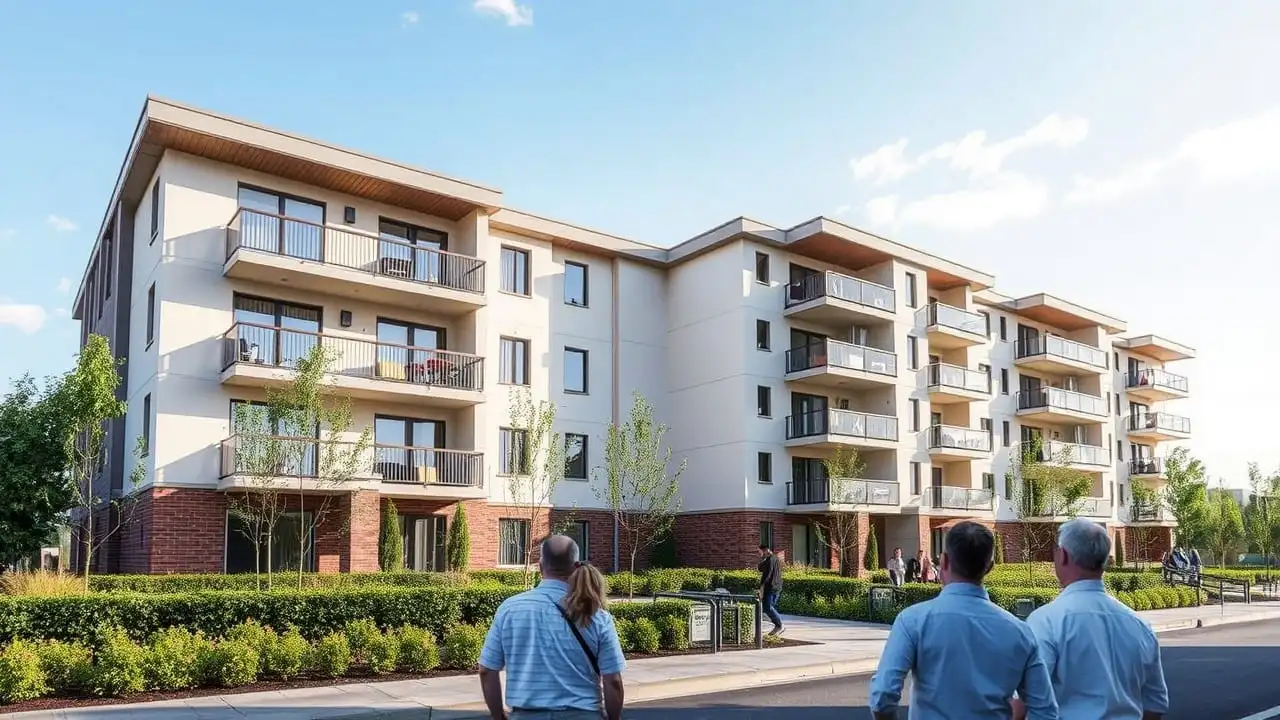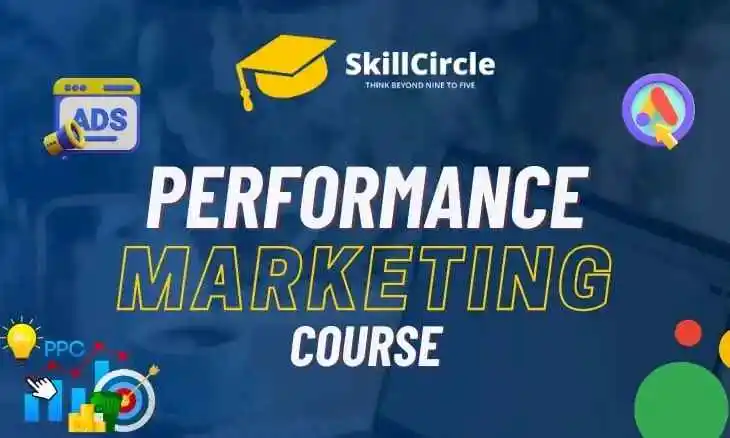Top 7 Digital Marketing Strategies in Real Estate to Boost Sales
To stay competitive in 2025, real estate businesses must adopt cutting-edge digital marketing techniques. Here are the top seven strategies:
1. Search Engine Optimization (SEO) for Real Estate Websites
Optimizing your real estate website with the use of targeted keywords, for instance, real estate digital marketing strategy, will contribute to increasing search engine rankings and driving organic traffic.
Pro Tip: Incorporating location-based keywords such as “luxury apartments in Mumbai” can help you to easily attract local buyers.
2. Real Estate PPC Advertising for Immediate Results
PPC (Pay-Per-Click) advertising is a supreme mean that lets you get the instant flood of visitors to your website. In real estate PPC advertising makes it possible for you to be able to target leads from people who are ready to buy in your location, as well as the details both in the demographics and interests areas. PPC advertising is a powerful tool. Very specific targeting can be done including where these potential buyers live, their characteristics, and what they are interested in for those who are local based real estate proprietors.
Example: An agency based in Delhi, generated over 300 leads in a month from Google’s targeted ads’ accompaniment for the keywords “affordable flats in Noida”.
3. Content Marketing with Blog Posts and Videos
Writing the articles with a particular focus on the problems encountered by the buyers can make you the one who gives better solutions and therefore your audience will trust you more. Consider the possibility of writing blogs that cater to the needs of buyers, such as how to choose the perfect property and an overview of the latest trends in real estate investment.
4. Social Media Marketing for Brand Awareness
It is a good idea to make use of platforms such as Instagram and Facebook when displaying the property listings and connecting with the potential buyers. Credibility can be increased by sharing property tours, client testimonies, and behind-the-scenes content.
5. Email Marketing for Lead Nurturing
Email marketing is a very well-planned strategy for your real estate business that keeps your prospective buyers updated with the newest properties, price drops, and future projects. Emails that are tailor-made have a greater tendency to be read and thus representatives can talk to more people through conversion rate optimization.
6. Virtual Tours and 3D Walkthroughs
As remote buyer tours improve the user experience, and also let buyers browse properties having stayed at home, they contribute to sales growth.
Example: A Bengaluru-based builder saw a 40% increase in bookings after integrating 3D walkthroughs on their website.
7. Influencer Collaborations for Wider Reach
Teaming up with influencers in the local area can really help to earn trust and gain the attention of more people for your brand. The opinions and suggestions of well-known influencers are trustworthy enough to make the users more determined to buy products or services.

Step-by-Step Digital Marketing Strategy for Real Estate Business Growth
A successful digital marketing strategy for real estate business involves a step-by-step approach to ensure maximum ROI.
Step 1: Define Your Target Audience
Reveal the identities, likes, and dislikes among your most valued buyers. The first step in creating content or advertising that is relevant and effective is recognizing your audience.
Step 2: Build an SEO-Optimized Website
Make sure your site is mobile-friendly, loads quickly and has high traffic in digital marketing with real estate keywords. A well-organized site would, at the very least, increase user satisfaction and hence, traffic from non-paid search.
Step 3: Implement a Strong Content Marketing Plan
Make sure that your portal is fast to load and is also optimized in the same way that digital marketing strategy in real estate keywords do. Besides, a nicely organized website enhances the user experience and often results in the increase of the organic traffic.
Step 4: Run Targeted PPC Campaigns
Use real estate PPC advertising techniques to get the immediate attention of traffic and, more importantly, leads. Try Google Ads, Facebook Ads, and Instagram Ads to aim your audience at buyers who are browsing the internet to buy properties.
Step 5: Engage on Social Media
Post on social platforms with the target audience’s interests in mind, engage with the comment sections, and use highly targeted social ads. Social media helps create brand awareness and encourages trust.
Step 6: Monitor and Optimize Performance
Boost the performance of your digital marketing strategy by keeping an eye on the results coming from Google Analytics; if needed, then change your tactics and target different audiences to increase your ROI.

How Real Estate PPC Advertising Can Maximize Lead Generation
Real estate PPC advertising is a surprisingly strong technique for generating well-qualified leads in a crowded market. For instance, through the process of bidding on what is the most appropriate – in other words, related to the topic, such as “luxury apartments in Delhi” and “affordable homes in Noida,” businesses of real estate can automatically get the visitors who are searching the internet with the purpose to buy a property
Key Benefits of Real Estate PPC Advertising:
- Immediate Traffic: PPC ads appear at the top of search results, driving instant traffic to your website.
- Targeted Audience: Ads can be customized based on location, interests, and search behavior.
- Measurable Results: PPC campaigns provide detailed insights into clicks, conversions, and ROI.
Digital Marketing Strategy Real Estate Experts Recommend in 2025
To stay ahead in 2025, the real estate experts recommend that you take the following comprehensive approach:
1. AI-Powered Chatbots for Better Customer Support
AI-based chatbots introduced to customer service centers provide on the spot answers to the questions of customers and thereby help improve the experience of users, thus increasing the lead conversion rates.
2. Personalized Email Automation
Sending targeted property suggestions in line with user preferences boosts people’s involvement and the probability of them making a deal with the company.
3. Data-Driven Insights for Better Decision-Making
Analyzing analytics data to keep track of user behavior and to improve the campaigns helps to ensure that the business will continually advance and earn even higher ROI.
Key Elements of an Effective Digital Marketing Strategy in Real Estate
- SEO and Local SEO: Optimize your website for both global and local searches to attract buyers in your target market.
- High-Quality Content: Create content that addresses buyer concerns and showcases your expertise in the industry.
- Social Proof and Testimonials: Display positive reviews, client testimonials, and success stories to build trust.
How to Create a High-Converting Digital Marketing Strategy for Real Estate Business
A good and effective digital marketing strategy for real estate business requires thorough planning and perfect implementation. Here’s how you can create one:
Step 1: Conduct Market Research
Analyzing your competitors’ strong and weak points, as well as your target group’s behavior can make it easy
Step 2: Develop Buyer Personas
Go into the depth of your target personas and develop them so as to adjust marketing information for them.
Step 3: Use Multiple Marketing Channels
SEO, PPC, social media, and email marketing are recommended to be used together in order to get to the maximum audience and make an impact.

Boost ROI with a Tailored Digital Marketing Strategy for Real Estate Business
Digital marketing strategy in real estate can be done in different ways. The best way to maximize the effort is by catering to market demand and audience trends.
Example: A Mumbai-based real estate company witnessed a 30% increase in sales after implementing a targeted digital marketing plan that combined SEO, PPC, and email marketing.
Conclusion: Mastering Real Estate Digital Marketing Strategy for Long-Term Success
A real estate digital markieting strategy done in a good way is not only a driver of traffic and lead generator but also serves as a trust and credibility indicator in the market. One way to ensure this is to adopt a data-driven strategy and implement the latest marketing trends. This, in turn, will enable such businesses to not just survive but stay ahead of the pack and enjoy a future of prosperity in 2025 and even beyond.



















